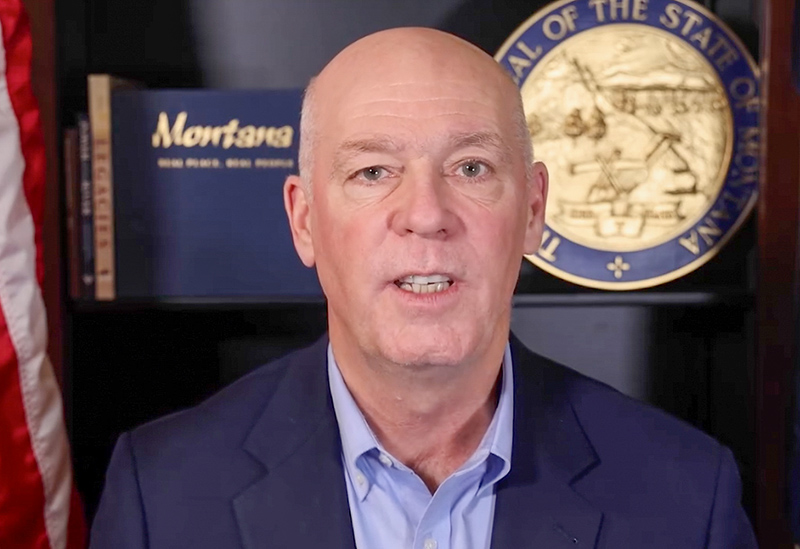Gray: D.C. Insurance To Cover Gender Dysphoria Treatments
Mayor's clarification of 2013 DISB ruling will enable transgender residents to access medically necessary care
D.C. Mayor Vincent Gray (D) on Thursday announced in a press conference at the Wilson Building that the District of Columbia’s Department of Insurance, Securities, and Banking (DISB) will issue a bulletin to health insurance companies in the District about the application of nondiscrimination provisions, in particular recognizing ”gender dysphoria” as a medical condition.
Thursday’s announcement clarifies the District’s position as stated in a March 2013 bulletin issued by DISB that instructed health insurers to remove language that discriminates on the basis of gender identity and expression from their policies, and grant those with gender dysphoria access to medically necessary benefits. By recognizing gender dysphoria as a medical condition, the newest ruling will allow transgender residents to have any treatments – ranging from hormones to gender reassignment surgeries – covered by health insurance. Previously, most D.C. residents seeking such treatments had to pay out-of-pocket for their care.

D.C. Mayor Vincent Gray
”Last March, the District began the process of removing exclusions in health insurance on the basis of gender identity or expression,” Gray said in prepared statement. ”Through the hard work of my Office of GLBT Affairs and a multi-agency working group headed by my Chief of Staff, Chris Murphy, we have today taken the necessary steps to completely eliminate these exclusions.
”Today, the District takes a major step towards leveling the playing field for individuals diagnosed with gender dysphoria. These residents should not have to pay exorbitant out-of-pocket expenses for medically necessary treatment when those without gender dysphoria do not. Today’s actions take us closer to being One City that values and protects the health of all our residents.”
The latest ruling states that in determining the medical necessity of services and benefits provided to consumers, insurance providers must refer to the World Professional Association for Transgender Health Standards of Care (WPATH), the recognized standard of medical care for transgender people and gender dysphoria. The benefits are not newly mandated, but do clarify that insurance companies offering coverage in the District of Columbia must take into account the District’s Human Rights Act, which prohibits discrimination based on gender identity and expression. That means that any service that would be provided to a cisgender person – meaning someone who identifies with the sex assigned them at birth – such as a mastectomy, for example, must also be provided to a transgender person.
”This action places the District at the forefront of advancing the rights of transgender individuals,” Gray said in his prepared statements. ”It also fully implements the District’s Human Rights Act by incorporating gender identity and expression as protected classes in the District’s health insurance laws.”
The District’s Department of Health Care Finance and Department of Human Resources also further clarified their policies to be in compliance with the DISB bulletin. Under the bulletin, all private plans offered in the District, as well as government-employee health care plans and D.C. Medicaid, must cover any medically necessary health services for transgender people. Any plans currently requiring insurance riders or supplements for an additional charge must be eliminated by the next renewal period.
Andy Bowen, a local transgender activist who has worked on health care issues with the District government, and who is a policy associate at the National Center for Transgender Equality, called the District’s new policy one of the ”most comprehensive” health care plans in the entire county.
”What we’ve seen from other places that have instituted these reforms is that it is of minimal cost to insurers,” Bowen said, citing insurance reforms passed in California and Connecticut. ”There’s no need for a premium increase.”
Bowen cited a study by the California Department of Insurance released last year as proof of her claims. That study concluded in its analysis of economic impact that ”the adoption of the proposed regulation would have an insignificant and immaterial economic impact on the creation or elimination of jobs, the creation or elimination of new businesses, and the expansion of businesses in the State of California.”
Bowen also said that the policy could be a boon to insurers, as it can be considered a form of preventative care. If transgender people are able to access medically necessary services, they tend to have better health outcomes. The California Department of Insurance study states: ”[T]he Department’s evidence suggests that benefits will accrue to insurance carriers and employers as costs decline for the treatment of complications arising from denial of coverage for treatments. The evidence suggests that there may be potential cost savings resulting from the adoption of the proposed regulation in the medium to long term, such as lower costs associated with the high cost of suicide and attempts at suicide, overall improvements in mental health and lower rates of substance abuse.”
”This is a win for the public,” said Bowen. ”It’s, frankly, a win for insurers. It’s a smart government decision, and it’s good for human beings.”
Support Metro Weekly’s Journalism
These are challenging times for news organizations. And yet it’s crucial we stay active and provide vital resources and information to both our local readers and the world. So won’t you please take a moment and consider supporting Metro Weekly with a membership? For as little as $5 a month, you can help ensure Metro Weekly magazine and MetroWeekly.com remain free, viable resources as we provide the best, most diverse, culturally-resonant LGBTQ coverage in both the D.C. region and around the world. Memberships come with exclusive perks and discounts, your own personal digital delivery of each week’s magazine (and an archive), access to our Member's Lounge when it launches this fall, and exclusive members-only items like Metro Weekly Membership Mugs and Tote Bags! Check out all our membership levels here and please join us today!























